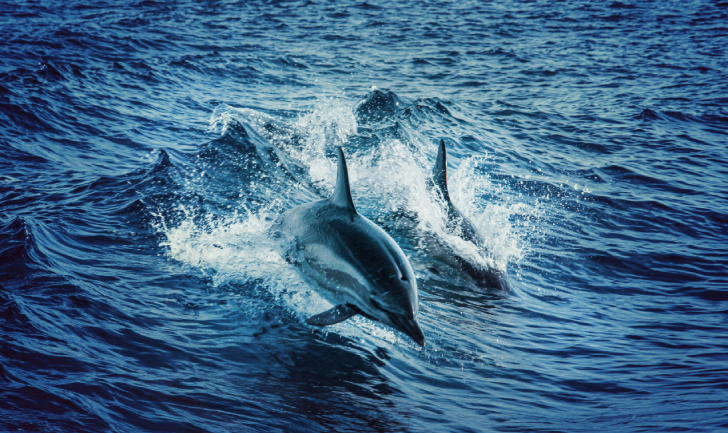Dolphin Day
National Dolphin Day is celebrated annually on April 14 to honor dolphins—highly intelligent, social marine mammals—and to raise awareness about their conservation. National Dolphin Day was established in 1990 by the Earth Island Institute’s International Marine Mammal Project. It began as a protest against the mass killing of dolphins caught in tuna fishing nets, particularly in the Eastern Tropical Pacific. Public outcry, spurred by undercover footage of dolphin deaths, led to the creation of the “Dolphin Safe” tuna label, which significantly reduced dolphin mortality in U.S. fisheries.

Pecan Day
National Pecan Day is celebrated annually on April 14 to honor the pecan—a nut native to North America and cherished in American culinary traditions. The word “pecan” comes from the Algonquian term pacane, meaning “a nut requiring a stone to crack.” Native American tribes valued pecans for their rich nutrition and long shelf life, making them a staple in trade and sustenance. Founding Fathers’ Favorite: In 1775, Thomas Jefferson gifted pecan trees to George Washington, who planted them at Mount Vernon. This gesture symbolizes the early American appreciation for the nut. Modern Recognition: The National Pecan Shellers Association established National Pecan Day in 1996 to celebrate the nut’s cultural and economic significance.

Pan American Day
Pan American Day is observed annually on April 14 to commemorate the conclusion of the First International Conference of American States in 1890. This conference led to the establishment of the International Union of American Republics, a precursor to the Organization of American States (OAS), aiming to foster cooperation, peace, and mutual understanding among the nations of the Western Hemisphere. The idea of Pan-American unity was first proposed by U.S. Secretary of State James G. Blaine in the late 19th century. His vision materialized with the First International Conference of American States, held in Washington, D.C., from 1889 to 1890. The conference’s conclusion on April 14, 1890, marked a significant step toward diplomatic collaboration among American nations. In 1930, the concept of Pan American Day was introduced to honor this milestone, and the first observance took place on April 14, 1931.

April 14th has seen many significant events throughout history across various fields, including politics, science, and culture.
Historical Events
1865 – Abraham Lincoln is shot
U.S. President Abraham Lincoln was shot by John Wilkes Booth at Ford’s Theatre in Washington, D.C. He died the following morning, making Vice President Andrew Johnson the 17th President of the United States.
1912 – RMS Titanic strikes iceberg
The Titanic hit an iceberg in the North Atlantic late on April 14. The “unsinkable” ship would sink in the early hours of April 15, leading to the deaths of over 1,500 people.
1931 – Spanish Republic proclaimed
King Alfonso XIII leaves Spain and the Second Spanish Republic is declared after municipal elections show overwhelming support for republicanism.
1945 – Allied troops liberate Buchenwald concentration camp
U.S. forces entered the Buchenwald concentration camp, freeing thousands of prisoners in one of the earliest liberations during World War II.
2003 – Human Genome Project is declared complete
Scientists announced the successful mapping of the human genome, a major milestone in genetics and medical research.
Famous Birthdays
1578 – Philip III of Spain – King of Spain and Portugal during a time of relative peace and decline of Spanish power.
1904 – Sir John Gielgud – Renowned English actor and director, known for his work in Shakespearean theatre and film.
1925 – Rod Steiger – American actor, Oscar winner for In the Heat of the Night.
1935 – Erich von Däniken – Swiss author best known for Chariots of the Gods?, popularizing ancient astronaut theories.
1941 – Pete Rose – Legendary MLB player and all-time hits leader, later banned for betting on baseball.
Notable Deaths
1865 – Abraham Lincoln (died April 15 after being shot on April 14).
**1912 – Over 1,500 people perished in the Titanic disaster, including millionaire John Jacob Astor IV and Isidor Straus (co-owner of Macy’s).
1986 – Simone de Beauvoir, French writer, philosopher, and feminist, author of The Second Sex.


